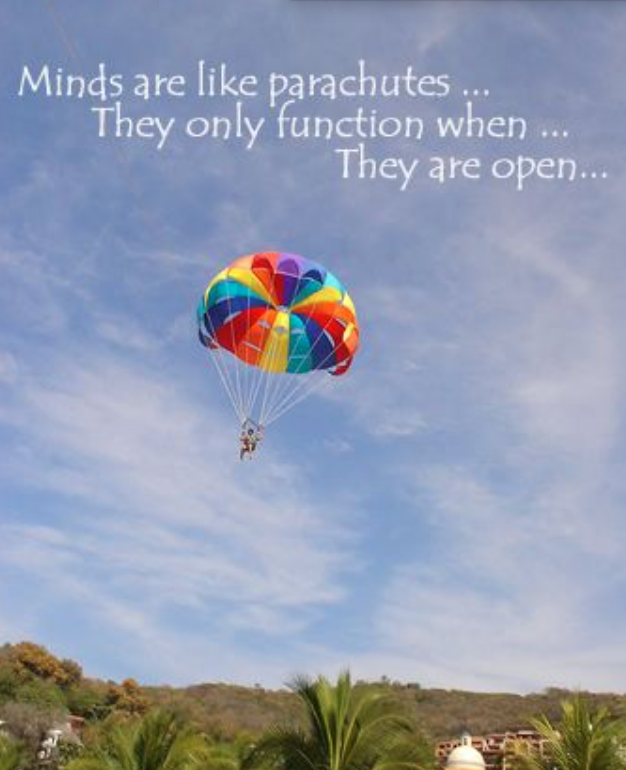
You've probably all heard or seen the quotation above. I fully endorse its idea (if not its modifier placement -- please switch the order of "only" and "function" as you read it) even though I hadn't given much thought to the final word until recently. The benefits of having an open mind seemed obvious to me until I considered the many ways a person's mind can be receptive or restricted. Now that I've thought about the idea, the advantages seem even more important.
Allow me to tell you a story. I recently heard someone say, in all gravity, "I knew I was going to hate it, and I gave it a try with an open mind, and I was right. I did hate it." I hope you agree that whatever it she was referring to makes no difference. Her words forced me to think about what I mean by having an open mind. In fact, I assume it means that we enter into the activity believing that it's possible we'll love it, or at least believing that we can't know how we'll feel about the endeavor until we've tried it out. We have to believe that all outcomes are possible.
I admit that I try to slant towards the positive version, toward thinking that I could love the new activity rather than going in neutrally. That said, how can I know anything about what there is to keep my mind open about if I don't know anything in general? And who's trying to limit me from knowing more about the possibilities?
A friend recently asked me, on behalf of her teenaged daughter, what I thought were the main differences between classic and modern literature. The first answer that came to mind is that because the publishing industry has changed, we now have way more access to voices that aren't white, cisgender, heterosexual, Christian, able-bodied, etc. By reading books written by authors and featuring characters who don't share my identifiers, I gain windows into other ways to roam through the world. My mind opens to possibilities.
There are lots of districts currently banning books all over the country, but more pernicious are the groups that are defunding libraries and making it harder for them to provide books depicting a broad range of voices and experiences. The more limited our access to books, the more difficult it is for us to imagine others' experiences, to learn empathy, to think outside our own narrow lanes. When all of our literature mirrors our own experiences, we start to believe that all reasonable people share our worldviews–and that's not true.
What was the last book you read that opened your mind? Imagine if you'd never had access to its ideas and images. Sad and scary, right? Share your thoughts in the comments.